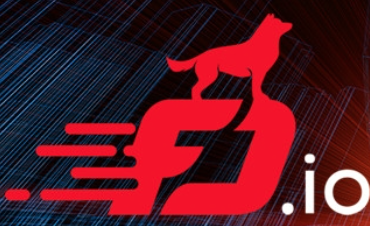Open Source Effort Targets Faster Nets, Storage

Networking is becoming a bottleneck as enterprises store, move and sift through vast quantities of structured and unstructured data from a growing list of sources. In an effort to accelerate adoption of network virtualization, a new open source effort seeks to provide a high-performance input/output services framework for developing the next generation of virtualized network and storage software.
The Linux Foundation on Thursday (Feb. 11) announced the formation of an open source effort called FD.io (pronounced "Fido") to develop the IO services framework for applications such as network function virtualization (NFV). It also released initial software tools for the effort and announced formation of a validation-testing laboratory.
Founding member of the project are: 6WIND, Brocade Communications Systems, Cavium, Cisco Systems, Comcast, Ericsson, Huawei, Inocybe Technologies, Intel Corp., Mesosphere, Project Calico, which is sponsored by Metaswitch Networks, PLUMgrid and Red Hat Inc.
"The FD.io project addresses a critical area needed for flexible and scalable IO services to meet the growing demands of today’s cloud computing environments," Jim Zemlin, executive director of the Linux Foundation noted in announcing the networking initiative.
The project's goal is to provide a services framework to accelerate development of high-performance IO capabilities. Designs based on code contributions to FD.io would be hardware and software kernel agnostic and could be deployed on bare metal, VMs or as part of an emerging application container ecosystem, the group said.
Cisco Systems (NASDAQ: CSCO) is contributing vector packet processing (VPP) code to the project. The production code is billed as performing twice as fast as current open source options while running on x86, ARM and Power processors as well as x86 servers. Performance details are available on the FD.io website.
Also available for download are vSwitch and vRouter capabilities based on the Data Plane Development Kit (DPDK), a set of libraries and drivers used for fast packet processing. (The organization behind DPDK stresses the kit does not function as a networking stack.)
Consortium members 6WIND and chipmaker Intel (NASDAQ: INTC) helped launch the DPDK effort. The kit can be used to speed development of low-latency and high throughput applications capable of direct packet processing for NFV and other uses, members said. Previously, systems were limited to running only one type of application, either on DPDK-enabled or traditional networks
FD.io member Red Hat (NYSE: RHT) recently added DPDK to its latest release, Enterprise Linux 7.2, allowing applications based on DPDK or traditional networks to be hosted on the same system. That, the company claimed, would help consolidate hardware in cramped datacenters.
The Linux Foundation said future FD.io projects are expected to include firewalls, load balancing, host stacks, additional software-defined network support and other IO services for network and storage applications.
Meanwhile, the new IO services effort also will include a validation-testing lab to verify code functionality and performance. The aim is to boost code quality in order to guarantee performance, stability and scaling.
"FD.io is more than just fast networking and fast storage," Cisco CTO David Ward noted in a statement. "Accelerating the pace of innovation and improving the developer experience around these services [were] a big design principal…."
Related
George Leopold has written about science and technology for more than 30 years, focusing on electronics and aerospace technology. He previously served as executive editor of Electronic Engineering Times. Leopold is the author of "Calculated Risk: The Supersonic Life and Times of Gus Grissom" (Purdue University Press, 2016).











